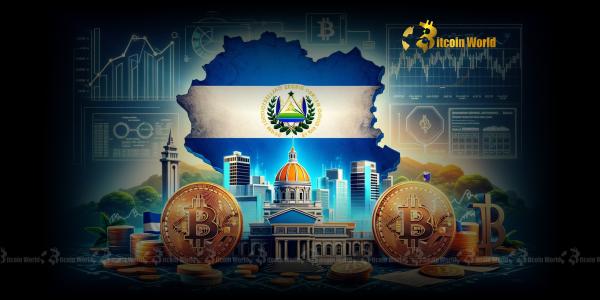El Salvador Bitcoin: Revolutionizing Digital Asset Policy
The landscape of digital assets is constantly evolving, with nations increasingly delving into the transformative potential of cryptocurrencies and blockchain technology. A recent significant development that has captured the attention of the global crypto community is the meeting between El Salvador’s forward-thinking President, Nayib Bukele, and Pakistan’s State Minister for Blockchain and Crypto, Bilal Bin Saqib.
At the core of this high-level discussion lies the recognition of the immense possibilities offered by blockchain technology and cryptocurrencies, even in the face of regulatory uncertainties. Key topics likely deliberated during this meeting include:
- Regulatory Frameworks: El Salvador’s journey in navigating the legal complexities of adopting Bitcoin as legal tender.
- Economic Integration: Strategies for seamlessly integrating digital assets into the national economy, particularly in areas such as remittances and financial inclusivity.
- Technological Infrastructure: The development of essential digital infrastructure to support widespread crypto adoption.
- Education and Awareness: Public initiatives aimed at enhancing understanding and adoption of new financial tools.
This dialogue sets the stage for potential knowledge sharing between El Salvador and Pakistan, with the former’s pioneering experience potentially shaping the latter’s digital asset strategy. Nayib Bukele’s bold vision has been pivotal in reshaping El Salvador’s economic narrative through significant Bitcoin adoption, setting an example for other nations to explore similar paths.
Nayib Bukele’s Vision: A Blueprint for National Crypto Strategy
As more countries embark on the crypto adoption journey, collaborative efforts and shared insights play a crucial role in fostering responsible and sustainable global cryptocurrency integration.
Shaping Digital Asset Policy: Overcoming Challenges and Forging Paths Forward
Central to this dynamic landscape is the formulation of robust Digital Asset Policy. Discussions such as the one between Bukele and Saqib provide a platform for nations to discuss best practices, regulatory hurdles, and potential frameworks that drive innovation while mitigating risks.
The development of effective digital asset policy entails navigating a myriad of intricate considerations:
- Consumer Protection: Safeguarding users against fraud, scams, and market manipulation.
- Financial Stability: Ensuring that the integration of digital assets does not jeopardize traditional financial systems.
- Anti-Money Laundering (AML) & Counter-Terrorist Financing (CTF): Implementing stringent measures to prevent illicit activities.
- Innovation vs. Regulation: Striking a delicate balance that fosters technological advancement without stifling it with overly restrictive regulations.
- Taxation: Establishing clear guidelines for taxing cryptocurrency transactions and holdings.
International cooperation is pivotal in shaping these policies. While the road ahead for digital asset integration may be intricate, engagements at the highest levels demonstrate the potential for a truly transformative digital future.
For more insights on the latest trends in the crypto market, delve into our comprehensive analysis of the key developments influencing global crypto adoption and digital asset policy.


